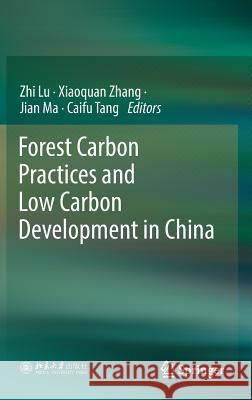Forest Carbon Practices and Low Carbon Development in China » książka
topmenu
Forest Carbon Practices and Low Carbon Development in China
ISBN-13: 9789811373633 / Angielski / Twarda / 2019 / 298 str.
Kategorie:
Kategorie BISAC:
Wydawca:
Springer
Język:
Angielski
ISBN-13:
9789811373633
Rok wydania:
2019
Wydanie:
2019
Ilość stron:
298
Waga:
0.61 kg
Wymiary:
23.39 x 15.6 x 1.91
Oprawa:
Twarda
Wolumenów:
01
Dodatkowe informacje:
Wydanie ilustrowane











